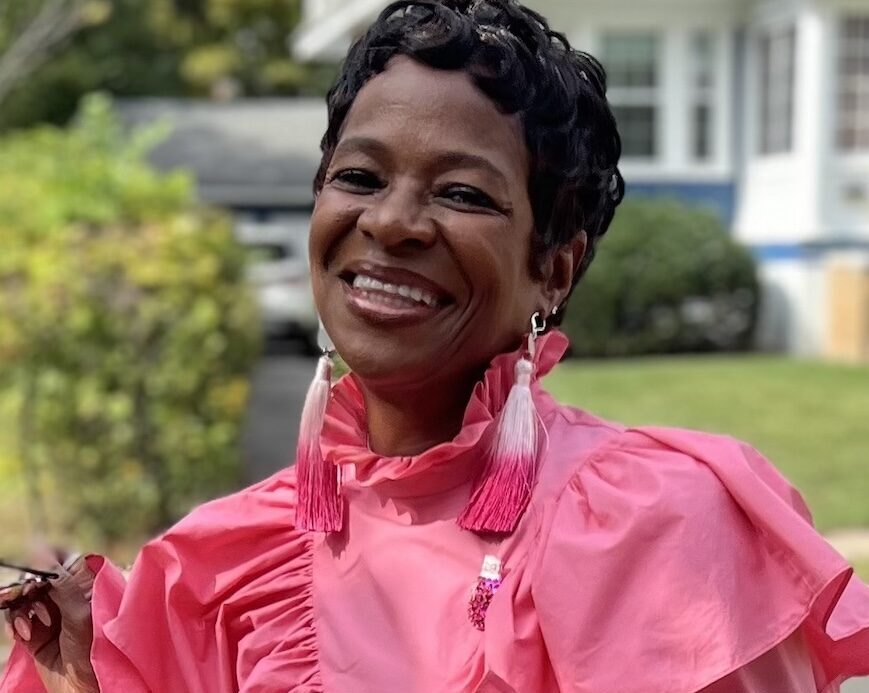When Natalie Pressey, a Financial executive, learned she had breast cancer, the wife and mother began to take the necessary steps to understand her genetic predispositions. She had discussions with her doctors about proper screening and preventative measures, with rounds of testing and second opinions.
Natalie was diagnosed with invasive lobular carcinoma (ILC), the second most common type of breast cancer, according to Johns Hopkins Medical Center.
Natalie’s proactive approach helped her to spring into action. Natalie began having open conversations with her medical care team and trusted community, empowering her to move forward by making informed decisions about her healthcare.
She Had Some Experience
Natalie Pressey served as a caregiver for her parents, who both endured long battles with cancer. This experience profoundly affected her long-term perspective on self-care and the healthcare system.
Witnessing firsthand the challenges and obstacles that can exist with advanced research and development and underserved communities, Natalie was determined to be proactive about her healthcare and take advantage of any preventative measures available.
Going Beyond Traditional Treatment
Despite initial conversations and recommendations for chemotherapy and radiation, Natalie was persistent in doing a deeper dive to explore her options. Natalie learned about the Genomic Oncotype Score Test by openly sharing her diagnosis with a colleague. Genomic Oncotype scoring is a type of testing that helps you and your doctors decide treatments after surgery. It uses a scoring system of 0-100 to determine the likelihood of cancer recurrence post-surgery and whether you will benefit from chemotherapy. It is important to note that not everyone is a candidate for this testing; Genomic Scoring helps determine the benefit of chemotherapy for early-stage, hormone receptor-positive, HER2-negative breast cancer, according to komen.org. Interpreting and discussing your score with your doctor is critical in determining the most effective treatment plan.
Natalie believes that thorough research and self-advocacy were vital to learning about this alternative treatment option to forgo chemotherapy and radiation.
“I would’ve never learned about this testing if I didn’t share my diagnosis with a colleague – that doesn’t look like me,” she shares.
However, by being open and vulnerable, she uncovered a testing option and alternative treatment plan that may not have otherwise been presented to her. “We tend to associate cancer with chemo automatically – that’s the diagnosis, and we tend not to ask questions, but we have to learn to speak up.”
After a successful reconstruction surgery, Natalie agreed to do the Genomic Scoring Testing. As a self-proclaimed “numbers person,” she was intrigued by the scoring system and was willing to explore her options before advancing directly to chemotherapy and radiation. “Seeing what the process looked like for parents, it was important to explore all options available to me,” Natalie adds.
After receiving a genomic score she was pleased with, and after further consultation with her family and team of doctors, Natalie decided to forgo chemotherapy.
Speak Up and Speak Out
Her unwavering advocacy marks Natalie Pressey’s story. Learning from her caregiver journey, she openly shared her experiences with colleagues, family, and friends, which led to a wealth of knowledge and information and a valuable support system. Her willingness to speak up and ask questions about traditional treatment options empowered her to make informed decisions about her treatment options.
She is transforming her pain into purpose, understanding her calling to continue sharing the importance of self-advocacy, self-care, and the power of knowing your options. She encourages women to be proactive about their health, seek second (and third) opinions, and embrace new research. “Cancer today doesn’t look like what it looked like 25-30 years ago,” she notes. By intentionally sharing her story, Natalie hopes to empower others to take control of their cancer journey.
